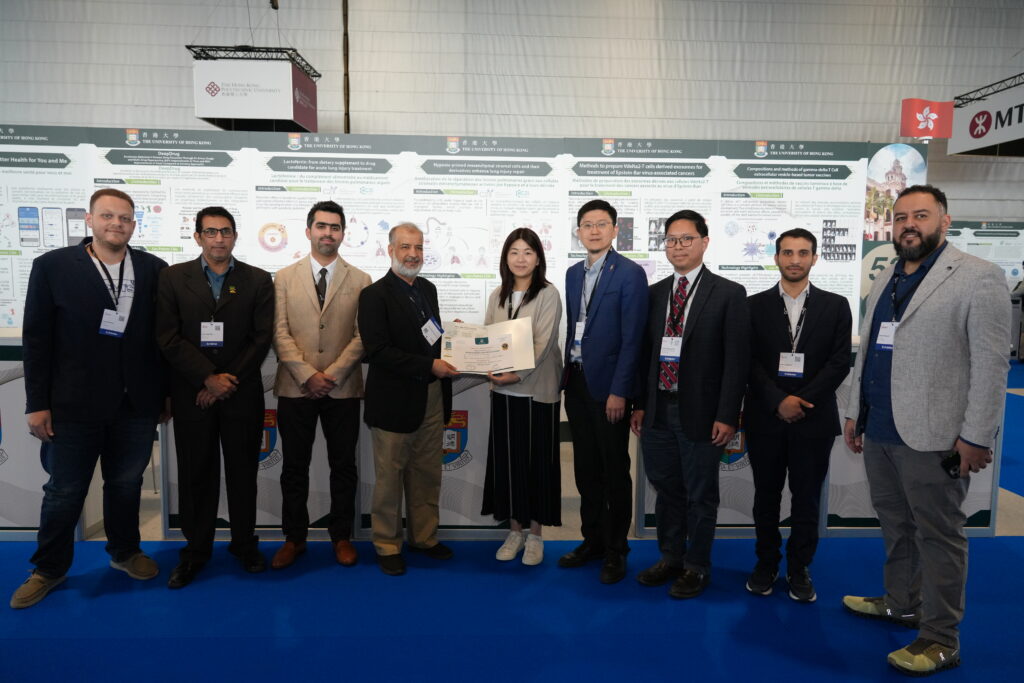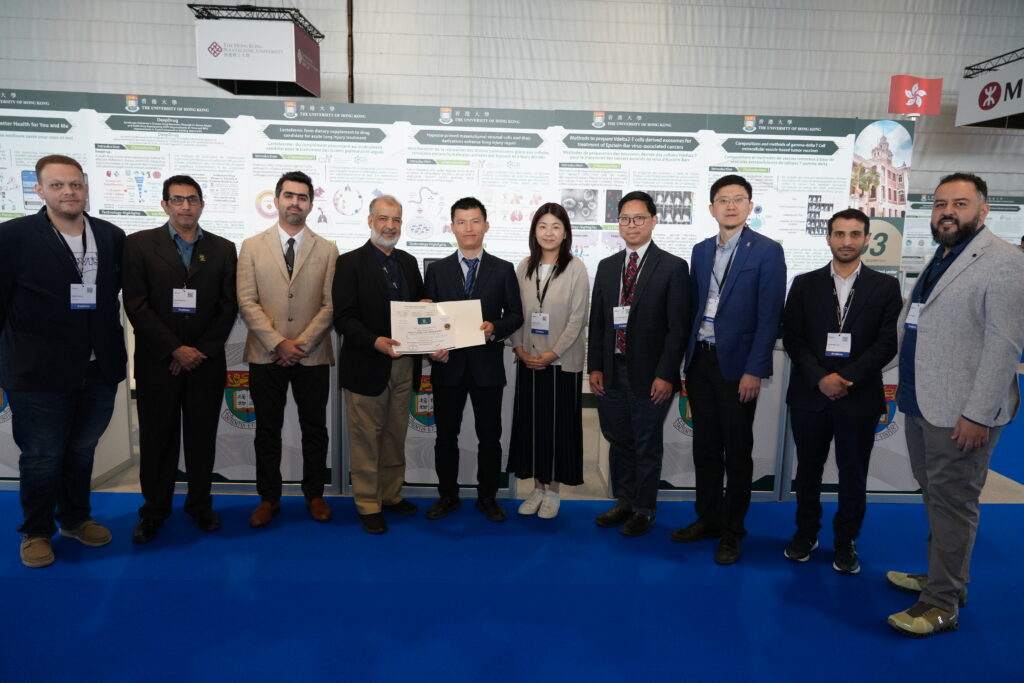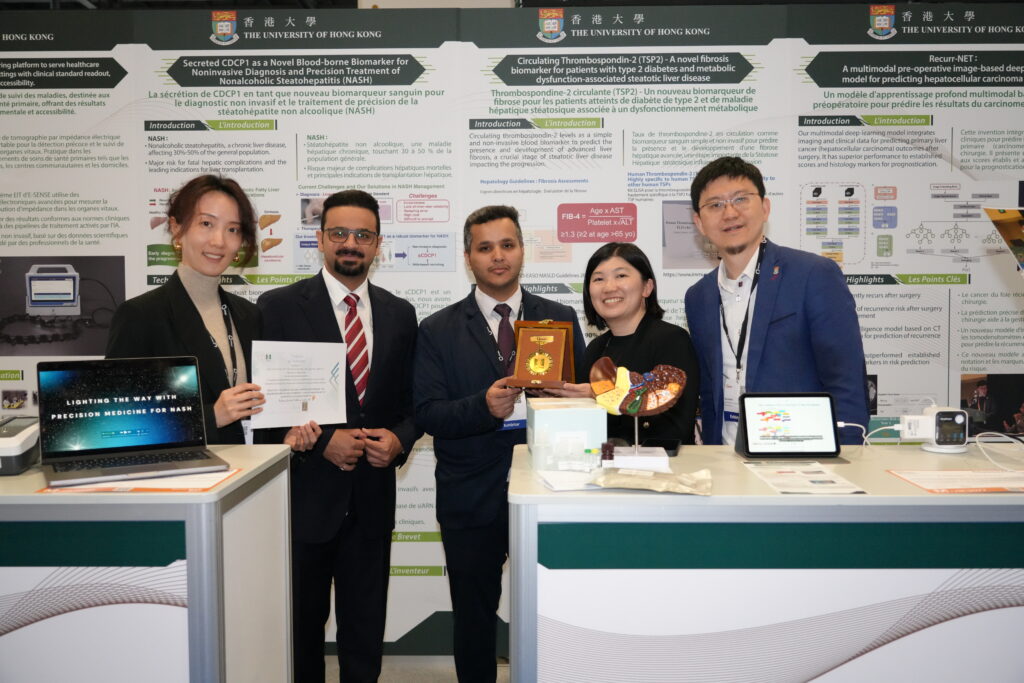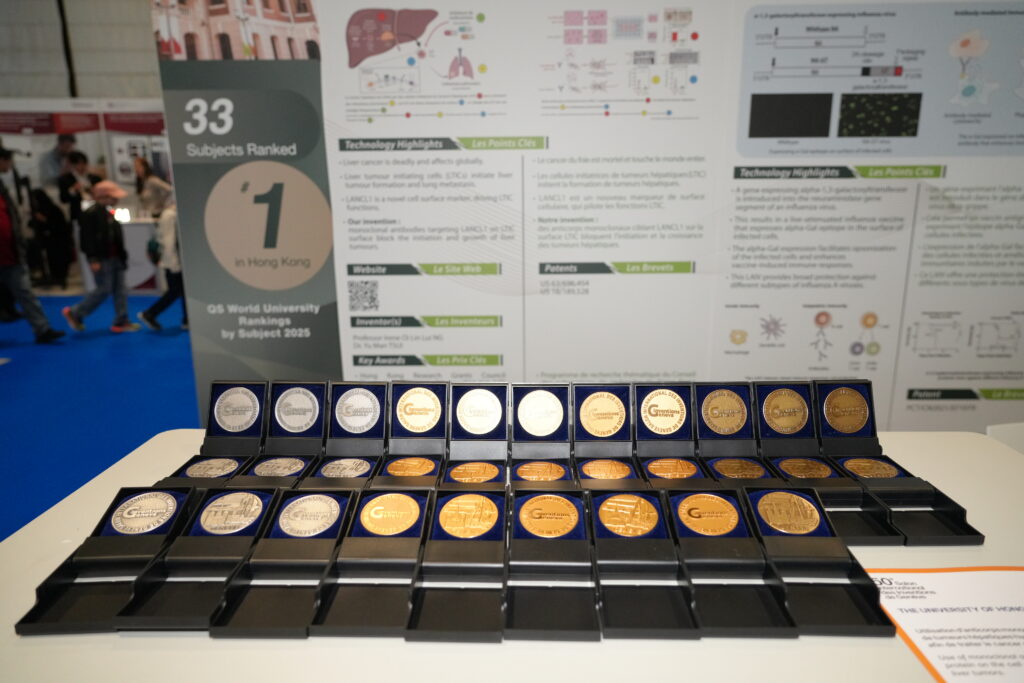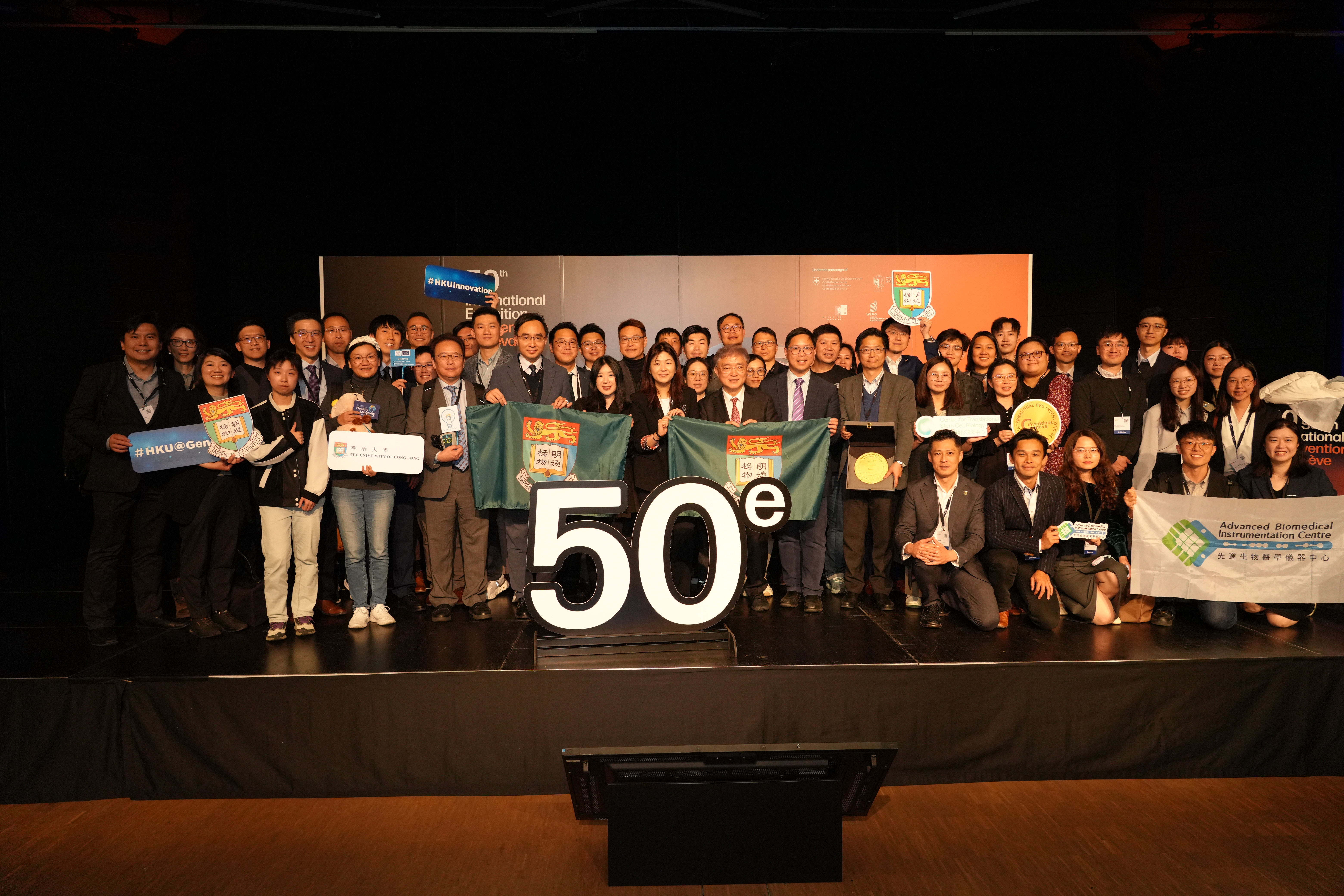For Immediate Release
12 April, 2025
Geneva, Switzerland – The University of Hong Kong (HKU) announces its successful participation in the 50th International Exhibition of Inventions of Geneva, held from 9 to 13 April, 2025. HKU secured a total of 32 awards, which included one esteemed special grand prize, seven Gold with Jury Congratulations, eight Golds, nine Silvers and seven Bronze medals.
The project Live-attenuated Influenza Vaccine with Alpha-1,3-Galactosyltransferase Expression to Enhance Immune Response won Special Grand Prize – Saudi Innovation Excellence Prize & Gold Medal with Jury Congratulations. It focuses on creating a live-attenuated influenza vaccine that expresses α-Gal epitopes on the surfaces of infected cells. By introducing a gene for alpha-1,3-galactosyltransferase into the neuraminidase gene segment of the influenza virus, the vaccine promotes the opsonization of these infected cells by anti-α-Gal antibodies, thereby enhancing the immune response triggered by the vaccine. This innovative approach aims to improve the efficacy of influenza vaccination. The project is led by Prof Leo L.M. POON and Dr Alex W.H. CHIN from the School of Public Health, LKS Faculty of Medicine.
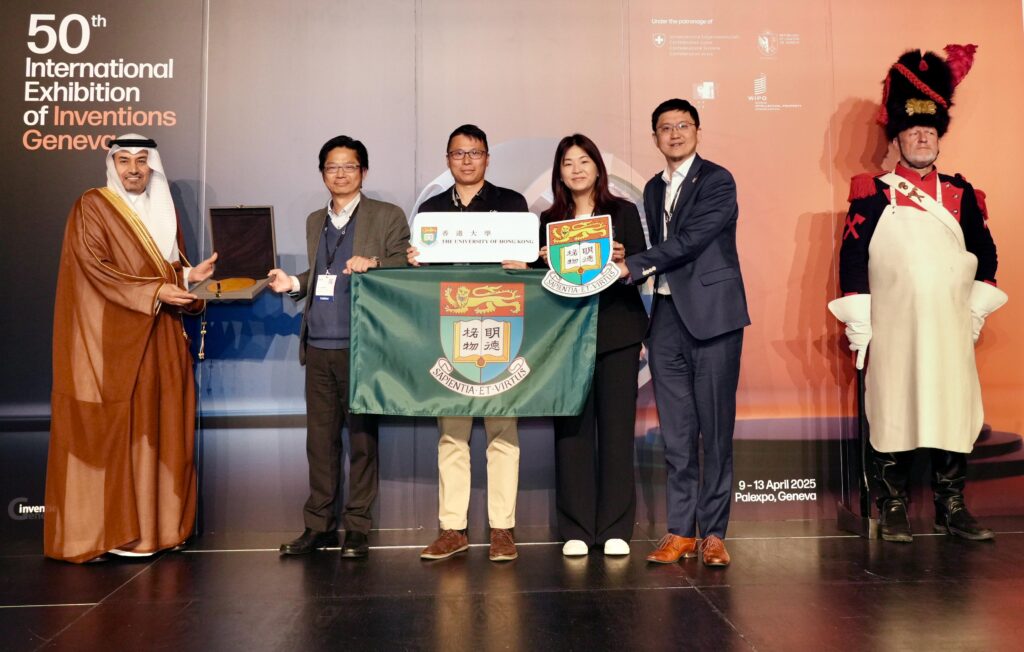
The other six projects also won Gold Medal with Jury Congratulations, including:
1. A Multimodal Medical Screening and Disease Monitoring Platform to Serve Healthcare Professionals, Patients, and Families in Primary Health Settings with Clinical Standard Readout, Environmental Versatility, and Accessibility
The project aims to provide healthcare professionals, patients, and families with a portable Electrical Impedance Tomography (EIT) system for the early detection and monitoring of vital organs such as the lung, liver, kidney, heart, and brain. Designed for use in primary healthcare settings like clinics, community centers, and homes, this non-invasive technology utilizes advanced microelectronics to measure impedance distribution in organs and generates clinically standard readouts through AI-enabled processing. The EIT system is validated by clinical professionals, offering a unique solution for disease detection and monitoring in community, clinic, and home environments.
It is led by Prof Desmond YAP from the Department of Medicine, School of Clinical Medicine, LKS Faculty of Medicine, Dr Russell W. CHAN and Dr Eddie C. WONG.
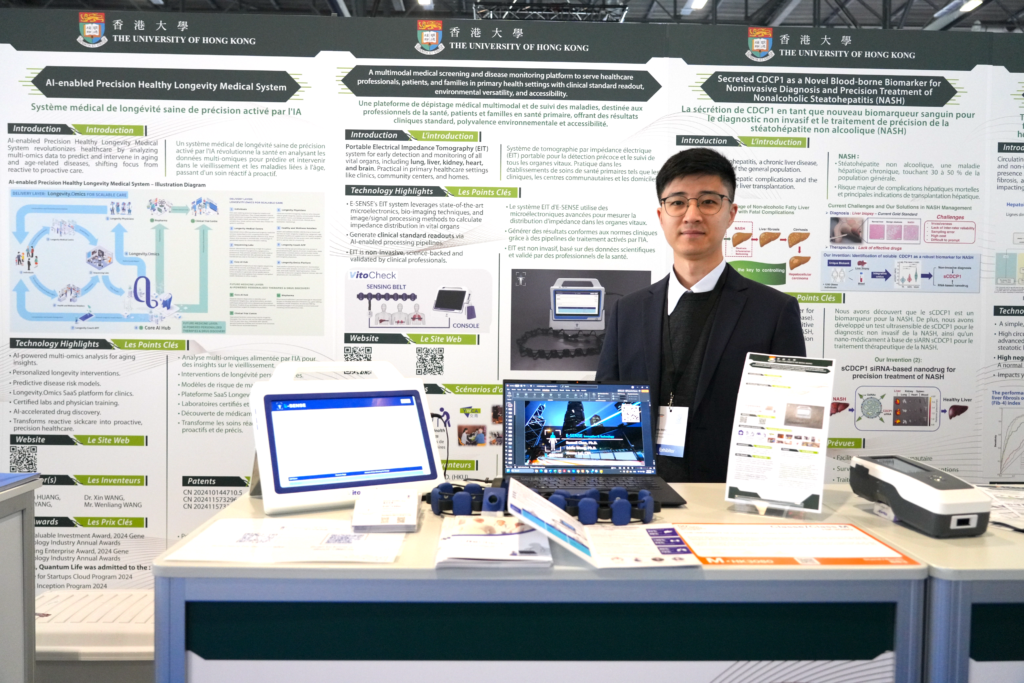
2. AI-Powered Blood Pressure Monitoring for Everyone
The project focuses on developing a non-invasive method for measuring blood pressure using AI and the built-in sensors of mobile devices, such as microphones, motion sensors, and cameras. This innovative approach allows for convenient home healthcare and continuous monitoring without the need for additional hardware. Key features include the ability to compute various vital signs, telemedicine integration, emergency care capabilities, personalized drug dosage optimization, cost-effectiveness, high scalability, and privacy protection, ensuring that no identifiable data is exposed.
It is led by Mr Nicholas Tze Yin KWOK and Prof Joshua Wing Kei HO from the School of Biomedical Sciences, LKS Faculty of Medicine.
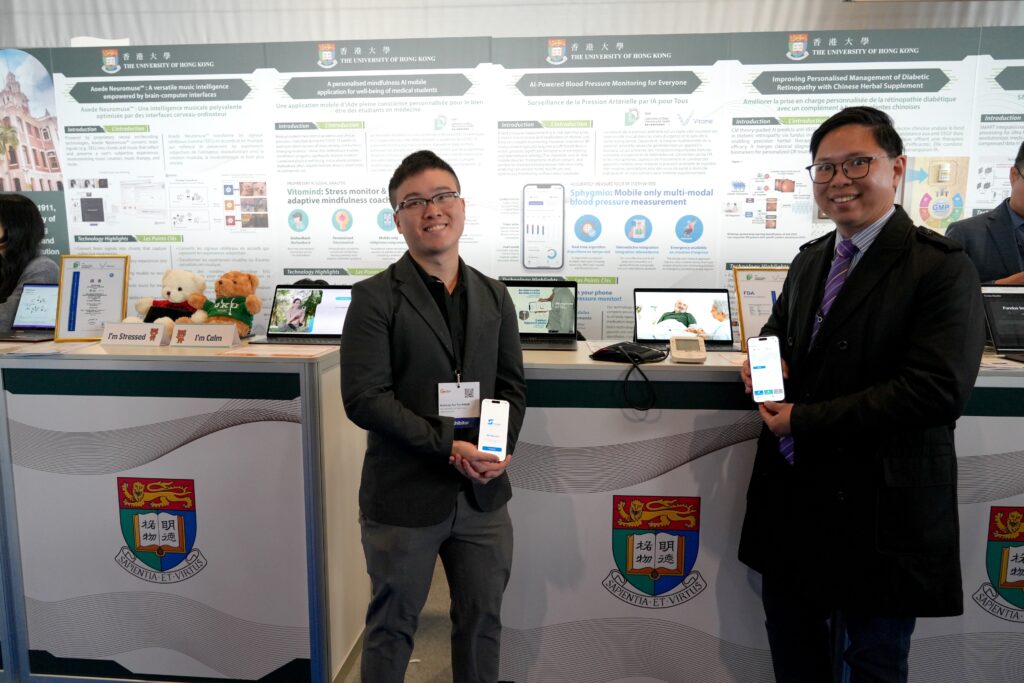
3. Circulating Thrombospondin-2 (TSP2) – A Novel Fibrosis Biomarker for Patients with Type 2 Diabetes and Metabolic Dysfunction-Associated Steatotic Liver Disease
The project focuses on using circulating thrombospondin-2 levels as a simple and non-invasive blood biomarker to predict the presence and progression of advanced liver fibrosis. This biomarker is significant for identifying critical stages of steatotic liver disease, which can influence disease progression in patients with type 2 diabetes and related metabolic disorders.
It is led by Dr Chi-Ho LEE, Prof Karen Siu-Ling LAM and Prof Aimin XU from the Department of Medicine, School of Clinical Medicine, LKS Faculty of Medicine.
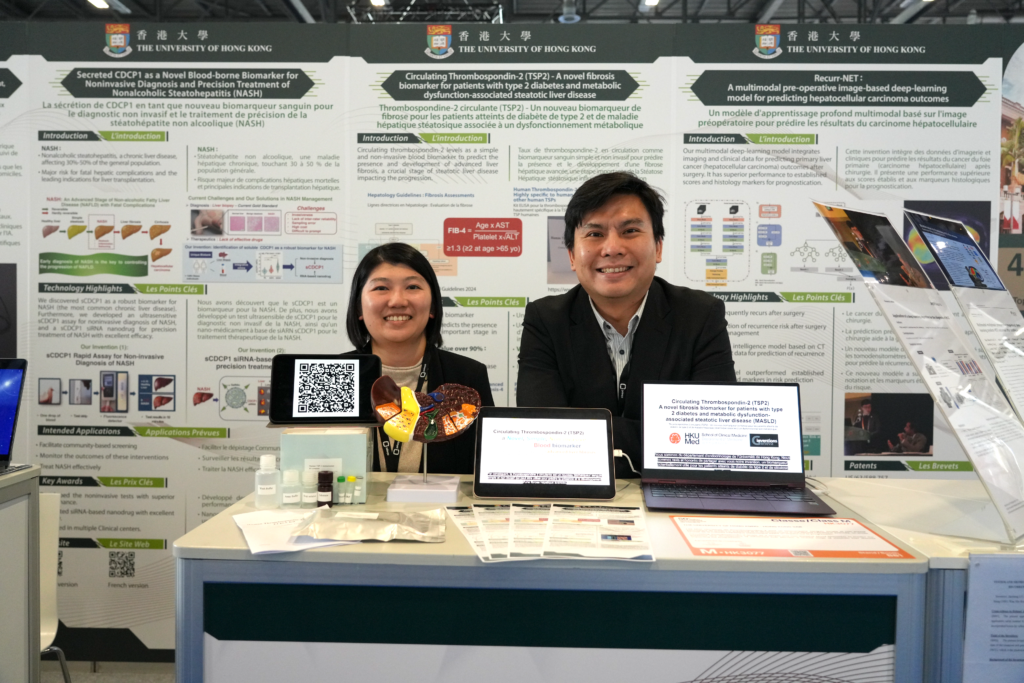
4. Compositions and Methods of Gamma-delta T Cell Extracellular Vesicle-based Tumor Vaccines
The project focuses on utilizing extracellular vesicles derived from γδ-T cells as a versatile platform for cancer vaccine development. This approach enhances immune activation and exerts antitumor effects, offering a scalable and ready-to-use solution for various cancers. The technology highlights include the use of γδ-T-EVs to deliver tumor antigens, stimulate immune responses, and directly eliminate tumor cells, ensuring improved safety, effectiveness, and broad applicability in cancer treatment.
It is led by Prof Wenwei TU, Dr Yinping LIU and Dr Xiwei WANG from the Department of Paediatrics & Adolescent Medicine, School of Clinical Medicine, LKS Faculty of Medicine.
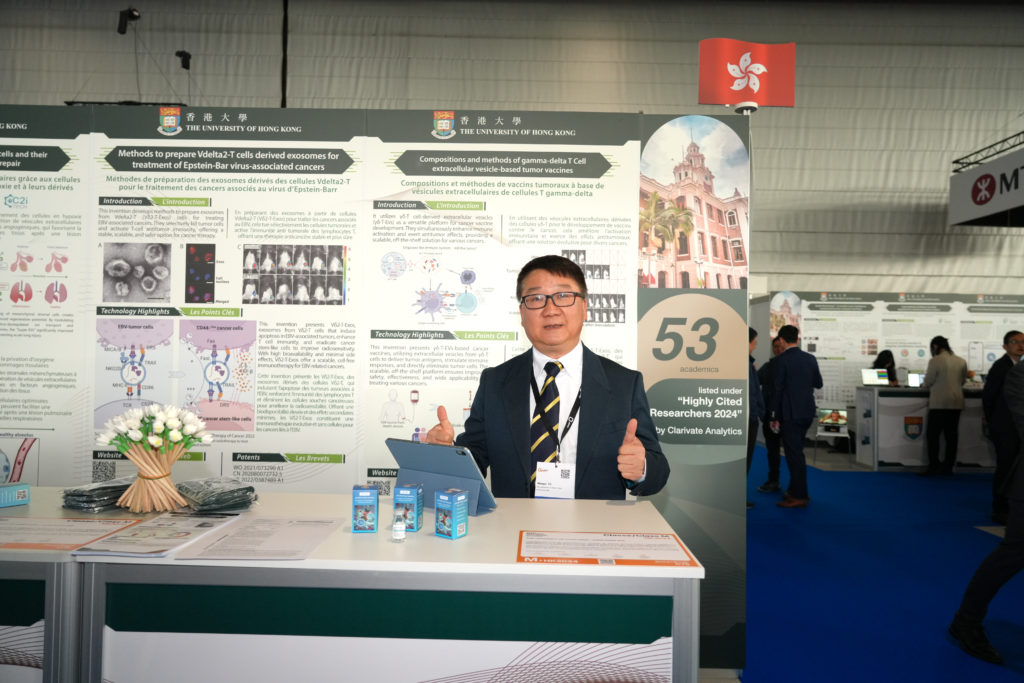
5. Hypoxia-Primed Mesenchymal Stromal Cells and Their Derivatives Enhance Lung Injury Repair
The project focuses on preconditioning mesenchymal stromal cells under hypoxic conditions, which simulates the oxygen deprivation seen in tissue damage. This process stimulates the secretion of therapeutic extracellular vesicles enriched with angiogenic factors that facilitate tissue regeneration following acute lung injury. These enhanced extracellular vesicles play a crucial role in promoting recovery from acute lung injuries associated with respiratory diseases.
It is led by Prof Michael Chi Wai CHAN, Dr Angel Po Yee MA, and Dr Rachel Hiu Ha CHING from the School of Public Health, LKS Faculty of Medicine.
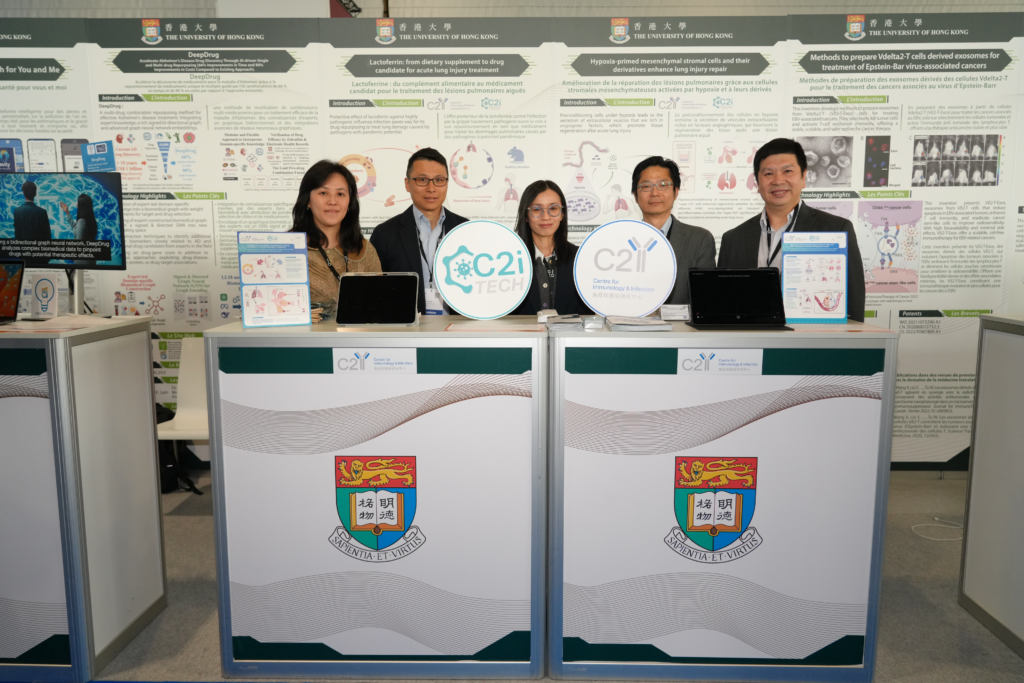
6. Methods to Prepare Vdelta2-T Cells Derived Exosomes for Treatment of Epstein-Barr Virus-Associated Cancers
The project focuses on developing techniques to produce exosomes from Vdelta2-T cells (Vδ2-T-Exos) aimed at treating EBV-associated cancers. These exosomes selectively target and kill tumor cells while enhancing T-cell antitumor immunity, providing a stable, scalable, and safer cancer therapy option. The innovation introduces Vδ2-T-Exos, which not only induce apoptosis in EBV-related tumor cells but also bolster T cell-mediated immunity, offering high bioavailability and low side effects, thus presenting a promising cell-free immunotherapy for effective treatment of EBV-related cancer
It is led by Prof Wenwei TU, Dr Yinping LIU and Dr Xiwei WANG from the Department of Paediatrics & Adolescent Medicine, School of Clinical Medicine, LKS Faculty of Medicine.
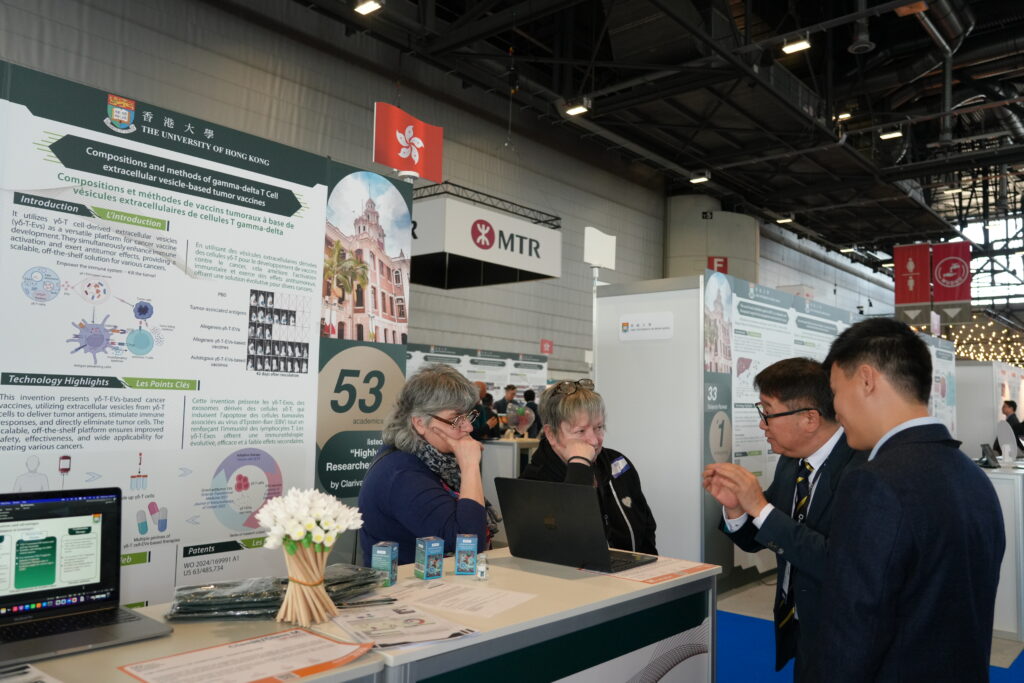
HKU exhibited 32 groundbreaking projects addressing critical global challenges across various fields, including biomedicine, engineering, and advanced garment manufacturing technology. The innovations presented by HKU reflect the University’s dedication to translating research into practical applications that benefit society.
Among the standout projects were advancements in health technology and novel therapeutic strategies, which garnered attention for their potential to improve health outcomes and enhance quality of life. These inventions exemplify HKU’s mission to foster innovation that address pressing societal needs.
Professor Max Shen, Vice-President and Pro-Vice-Chancellor (Research), expressed pride in the researchers’ accomplishments: “Our participation in the International Exhibition of Inventions of Geneva highlights HKU’s commitment in innovation. We are thrilled to have received 32 awards this year, underscoring the exceptional work of our researchers and their commitment to creating impactful solutions.”
The International Exhibition of Inventions of Geneva serves as a vital platform for inventors, researchers, and industry leaders from around the globe. HKU’s achievements at this event strengthen its role as a leader in innovation and research, contributing to the ongoing development of sustainable solutions and technological advancements.
Please click here for a complete list of HKU’s inventions participated in the event and further details.
Please click here to download high-res photos.
For media enquiries, please contact:
Mr Antony KWONG
Knowledge Exchange Office
Email: antonyak@hku.hk
